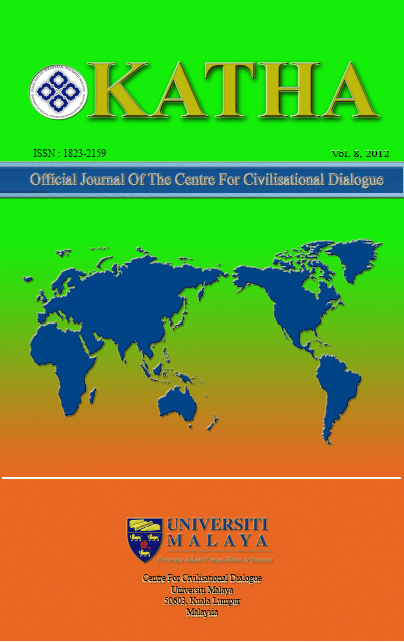Spiritual Anthropology: Man and His Spiritual Position in Rumi’s Doctrine
Keywords:
Rumi, Sufist, Man, RealityAbstract
Fritjof Schuon (2002) in one of his works suggested the need for a ‘spiritual anthropology’ to re-identify the meaning of man1. In modern anthropology man is simply a creature that exists in the natural world with the tendency to survive and to improve his self in accordance with the changing conditions of his natural and social environment. In different branches of modern knowledge, such as anthropology, sociology and psychology the image of man is no more than a natural creature that creates his living conditions by adaptation and improvement as allowed by the natural and social conditions surrounding him. It is in the works of Mawlana Jalaluddin Rumi and Sufist in general, as well as other metaphysicians of the Oriental traditions, that one can find the abundant discussions on the concept of man, his reality, both spiritual and bodily as well as his potential force that is inherent within him to transcend his limited elemental or bodily self and able to realize his inner self that portrays him as he really was in the very beginning. This paper will discuss the above need to understand the meaning of man by using the arguments of the great thinker, Mawlana Rumi in his works especially the Divan Shams al-Tabriz, and relates his concepts to re-identify the meaning and the inner dimension of man in religious teachings.
Downloads
Downloads
Published
How to Cite
Issue
Section
License
Articles submitted to the journal should not have been published before in their current or substantially similar form, or be under consideration for publication elsewhere. Authors submitting articles for publication warrant that the work is not an infringement of any existing copyright and will indemnify the publisher against any breach of such warranty. For ease of dissemination and to ensure proper policing of use, papers and contributions become the legal copyright of the publisher unless otherwise agreed. By submitting a manuscript, the author(s) agree that copyright for the article is transferred to the publisher, if and when the manuscript is accepted for publication. However, it can be reprinted with a proper acknowledgment that it was published in KATHA.

This work is licensed under a Creative Commons Attribution-NonCommercial-NoDerivatives 4.0 International License.




